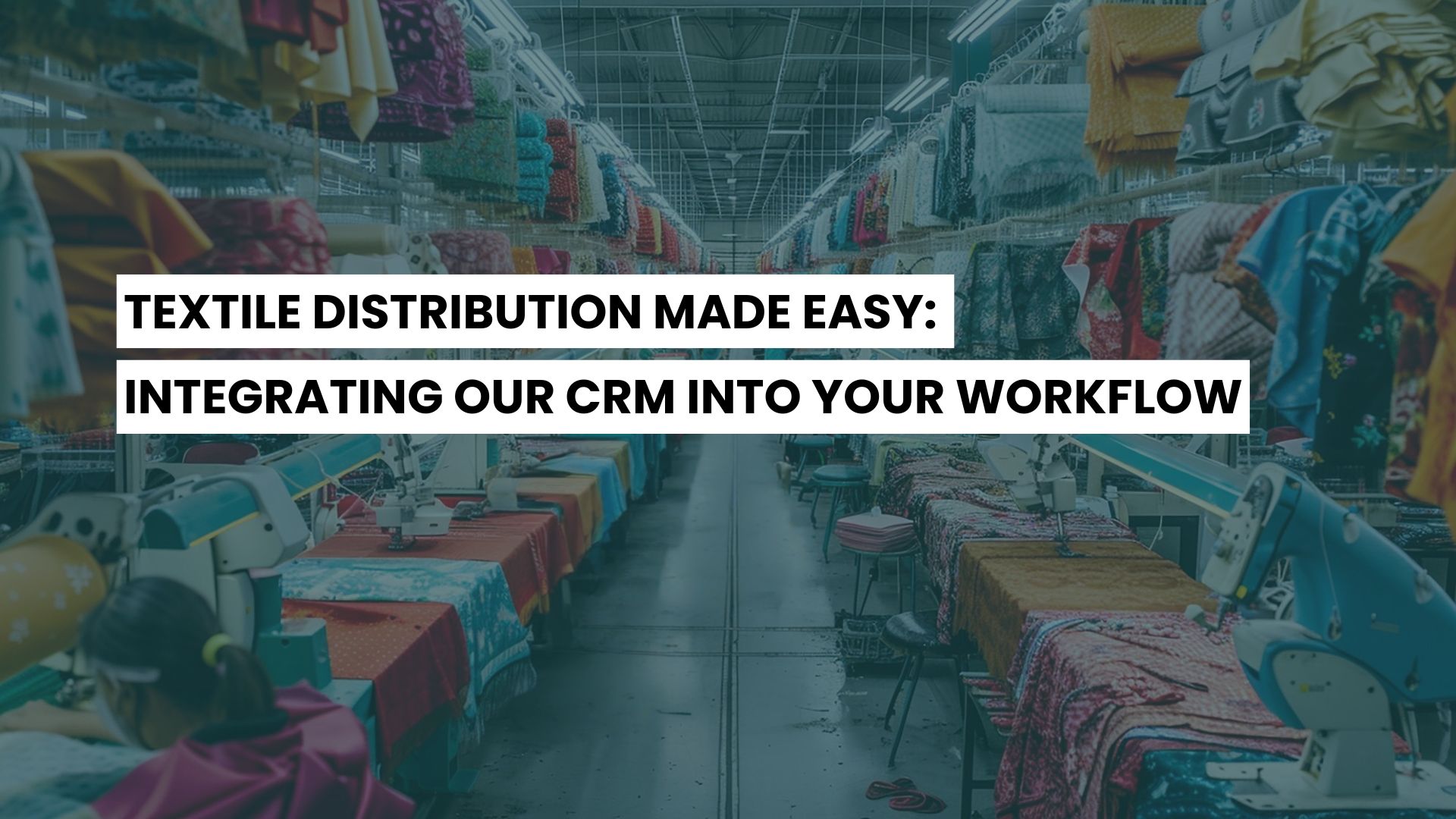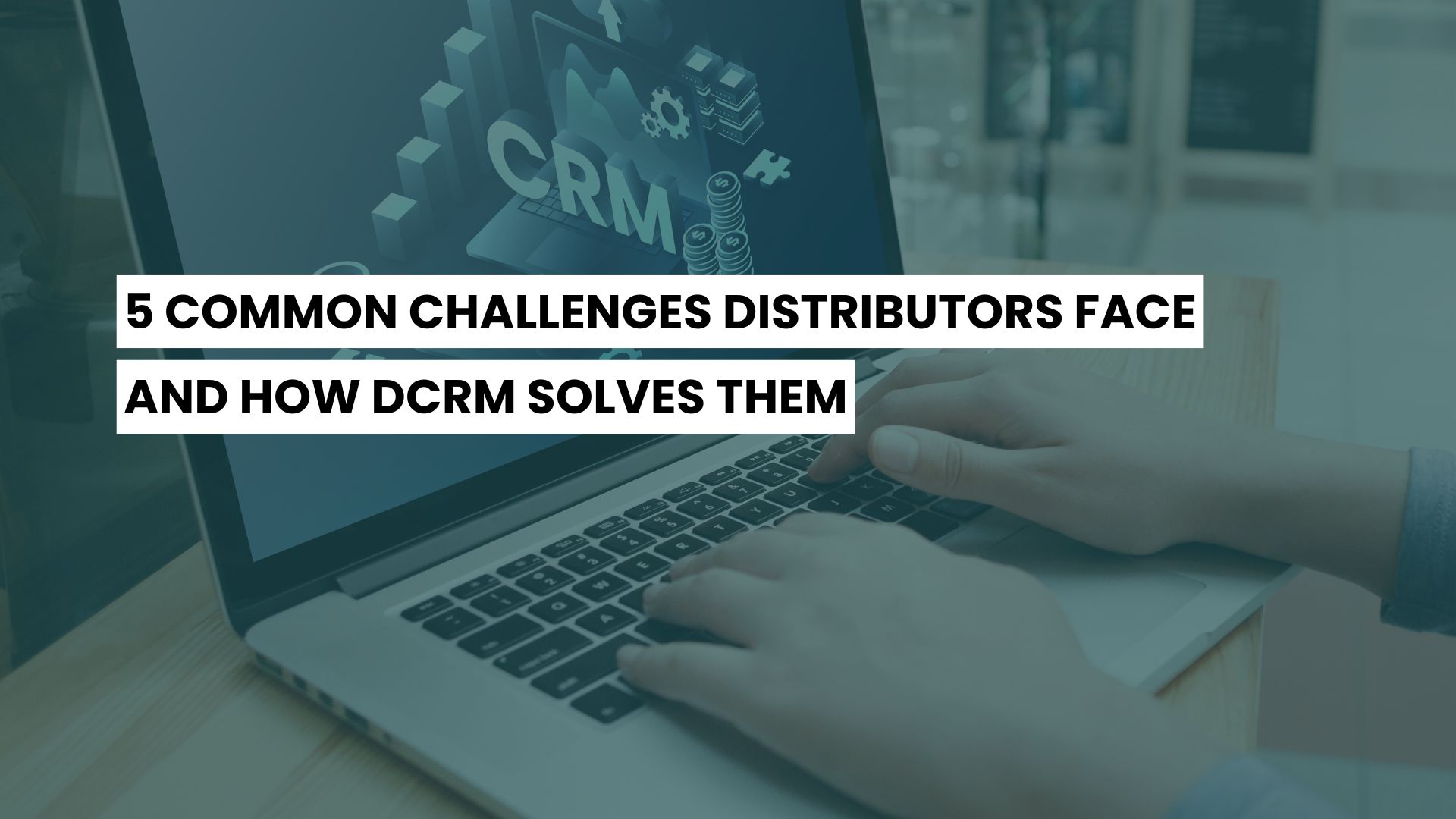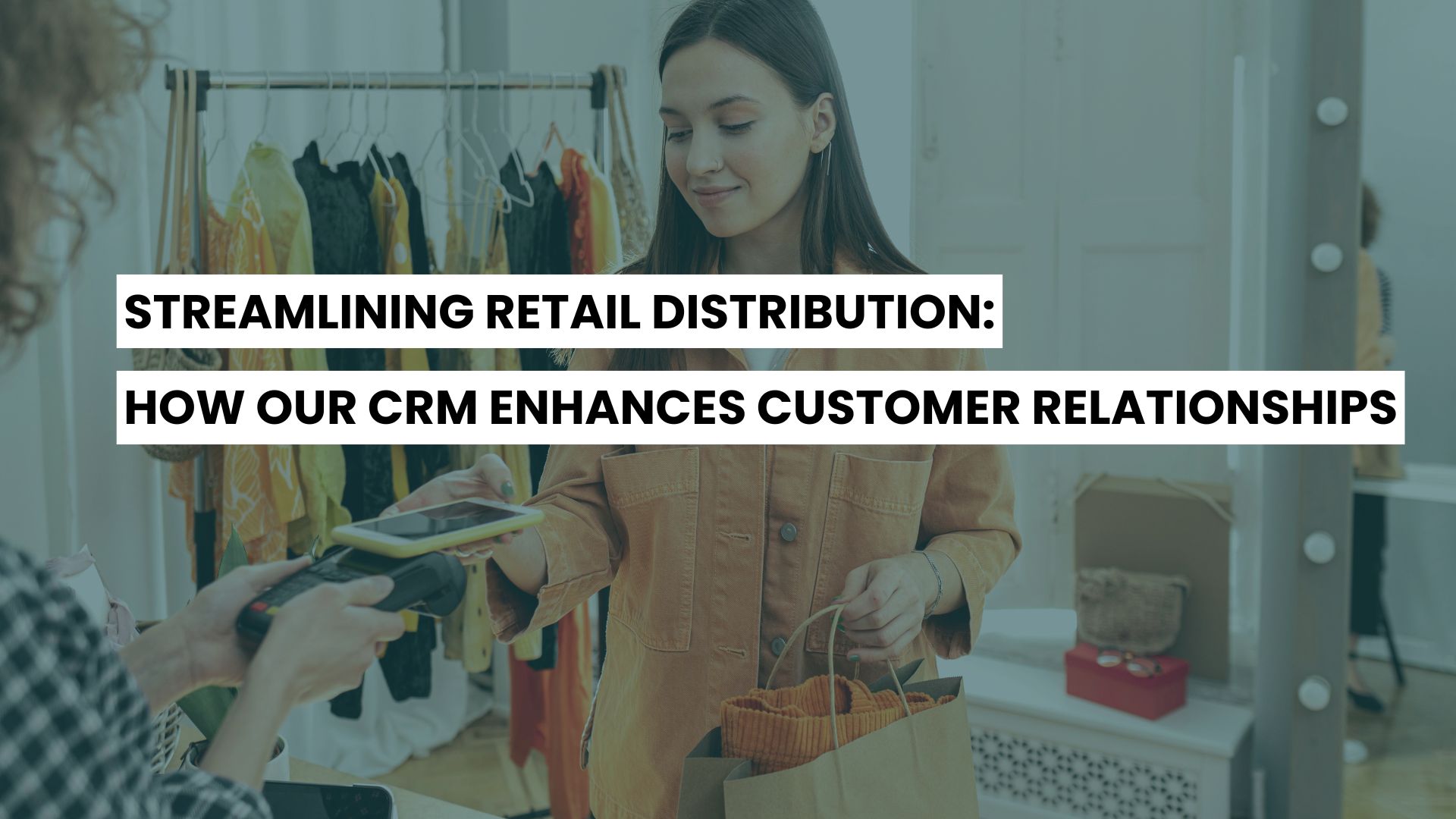Textile production is a massive industry that hasn’t seen a lot of change in the way it does business in recent years. However, that may be about to change, thanks to a new software called Distribution CRM. This software is designed to help textile companies manage their customers, and sales in a more efficient and effective way. In short, it has the potential to revolutionise the textile industry.
1. The industry has undergone many changes over the years, but the biggest change in recent years has been the introduction of distribution CRM:
The textile industry has undergone many changes over the years, the biggest being the introduction of distribution CRM. This software has helped to revolutionise the industry and change the way that businesses operate.
When it comes to the distribution of textile products, businesses have to deal with a lot of different variables. They need to know where their products are, how much inventory they have, what their customers want, and when they need it.
In the past, businesses would have to keep track of all of this information manually. This was time-consuming and often led to errors. With distribution CRM, all of this information is automatically tracked and updated in real-time. This means that businesses can save a lot of time and money.
Another big benefit of distribution CRM is that it helps businesses to better understand their customers. With this information, businesses can tailor their products and services to better meet the needs of their customers. They can also improve their customer service and make sure that they are always providing the best possible experience.
Overall, the introduction of distribution CRM has been a game-changer for the textile industry. It has made it easier for businesses to operate and has helped to improve the quality of products and services.
2. Distribution CRM is a new way of managing the distribution of textile products:
Textile distribution has always been a complex and ever-changing industry. Managing the distribution of textile products has been a challenge for manufacturers and retailers alike. With the advent of Distribution CRM, however, the landscape is changing.
Distribution CRM is a new way of managing the distribution of textile products. It helps manage orders, and shipping. Distribution CRM is changing the way the textile industry does business, and it is revolutionising the way manufacturers and retailers manage the distribution of their products.
Distribution CRM provides a centralized platform for managing the distribution of textile products. It gives manufacturers and retailers the ability to manage their orders, and shipping from one central location. This allows for more efficient and effective management of the distribution process.
Distribution CRM is also changing the way the textile industry does business by providing a more efficient and effective way to manage the distribution of textile products. By centralising the management of the distribution process, Distribution CRM helps to reduce the costs associated with managing the distribution of textile products.
The benefits of Distribution CRM are many, and the potential for this system to revolutionise the textile industry is great. manufacturers and retailers who are looking to improve the efficiency and effectiveness of their distribution process should consider implementing Distribution CRM.
3. It allows manufacturers and distributors to take control of their Order management and distribution channels:
The textile industry is undergoing a revolution, with distribution CRM playing a pivotal role in changing the way businesses operate. By taking control of order management and distribution channels, manufacturers and distributors are able to streamline their operations, increase efficiency and reduce costs.
With distribution CRM, businesses are able to automate their processes and procedures, making it easier to manage their operations. This includes managing orders, tracking routes, and managing distribution channels. By automating these processes, businesses are able to save time and money, which can be reinvested into other areas of the business.
In addition, by taking control of their distribution channels, businesses are able to ensure that their products are reaching the right customers, in the right quantities and at the right time. This allows businesses to better meet customer demand, which can result in increased sales and revenues.
Ultimately, distribution CRM is giving businesses the ability to take control of their operations, increase efficiency and reduce costs. This is revolutionizing the textile industry, and businesses that adopt this technology will be well positioned to take advantage of the numerous benefits it offers.
4. Distribution CRM is changing the way the textile industry does business, and it is revolutionizing the industry:
The textile industry has been slow to change and adapt to new technologies, but that is starting to change with the advent of distribution CRM systems. These systems are changing the way the industry does business, and they are revolutionising the industry.
Distribution CRM systems allow businesses to manage their customer relationships more effectively and efficiently. They provide a centralised database for all customer information, which can be accessed by all members of the organisation. This allows for better communication between departments and a more coordinated approach to customer service.
Distribution CRM systems also provide a number of features and tools that can help businesses to improve their operations. They can help businesses to manage supplier relationships, and automate order processing. This can all lead to a more efficient and effective operation.
The benefits of distribution CRM systems are numerous, and they are changing the textile industry for the better. These systems are making it easier for businesses to communicate with their customers, track their inventory, and automate their operations. This is leading to a more efficient and effective industry that is better able to meet the needs of its customers.
5. Manufacturers and distributors who adopt distribution CRM will be able to take advantage of the efficiencies and cost savings it offers:
The textile industry is one of the oldest and most important industries in the world. It is an industry that is constantly evolving and changing, and one that is always looking for ways to improve. One of the latest changes to come to the textile industry is the adoption of distribution CRM (customer relationship management) systems.
Distribution CRM is a type of software that is designed to help businesses manage their customer relationships. It can be used to track customer orders, manage customer accounts, and even create and manage loyalty programs. Distribution CRM systems can also be used to help businesses manage their inventory levels, and to track and analyse customer data.
The biggest benefit of distribution CRM is that it can help businesses to save time and money. By using a distribution CRM system, businesses can automate many of the tasks that are involved in managing customer relationships. This can free up time for businesses to focus on other areas of their business, such as marketing or product development. Additionally, by using a distribution CRM system, businesses can avoid the need to hire additional staff to handle customer relationship tasks.
Another benefit of distribution CRM is that it can help businesses to improve their customer service. By using a distribution CRM system, businesses can make sure that their customers are always happy and satisfied. Additionally, by using a distribution CRM system, businesses can keep track of customer complaints and issue resolutions. This can help businesses to quickly and easily resolve any customer service issues that may arise.
Overall, distribution CRM is a valuable tool for businesses of all sizes. It can help businesses to save time and money, and to improve their customer service. If you are looking for a way to improve your business, then you should consider adopting distribution CRM.
6. Distribution CRM is the future of the textile industry, and it is changing the game:
The textile industry has undergone many changes over the years, but one of the most significant changes is the introduction of distribution CRM.
Distribution CRM is a system that helps textile companies manage their customer relationships. It is a powerful tool that can help companies keep track of their customers, manage their orders, and keep track of their sales. Distribution CRM is changing the textile industry because it is making it easier for companies to manage their customer relationships.
The traditional way of managing customer relationships was to keep track of customer information in a paper system. This was time-consuming and prone to errors. With distribution CRM, all of this customer information is stored in a computer system. This makes it easy for companies to access customer information and make changes to it.
Another way that distribution CRM is changing the textile industry is by making it easier for companies to sell their products. In the past, companies had to rely on middlemen to sell their products. With distribution CRM, companies can sell their products directly to their customers. This means that companies can sell their products at a lower price, and they can reach a larger number of customers.
Conclusion:
Distribution CRM is changing the textile industry because it is making it easier for companies to manage their customer relationships and sell their products. It is a powerful tool that is revolutionising the way the textile industry does business. As the textile industry looks to move forward into the future, Distribution CRM is playing a pivotal role in revolutionising the way businesses operate. By helping businesses keep track of their inventory, customers, and sales, Distribution CRM is streamlining the way the textile industry does business. In a constantly changing market, Distribution CRM is helping the textile industry stay ahead of the curve and remain competitive.




